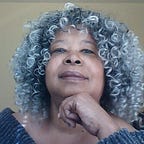It’s a Good Day to Be Indigenous — In Canada
I helped bring down the Canadian Web page that crashed the night Trump was elected. You know, the one that explained how to immigrate.
I’d actually checked it earlier, but that night, I went back wanting to give it a really good read.
I’ll never leave the States, though. I’m an American “girl,” through and through. But this week, when Trump seems to be marching America back to the Middle Ages, Canada took two giant steps into the future by moving to right some ancient wrongs. Ancient wrongs I know a little bit about.
As the wife of a Hopi Indian artist, I lived on the Hopi Reservation for almost a decade. I still have lots of family and friends there, and go back “home” as often as possible.
My maternal blood relations include a Black Creek branch, which means I am descended from slaves who ran away to live with the Creek Nation. We may have some Seminole roots, too — depends which elder I ask.
Years ago, I was invited to the Little Big Horn ride with relations of the Thunderhawk family, a family which was among the first to stand up against that pipeline out in North Dakota. They’re fierce, proud people, who have been at the forefront of other fights over the years.
The ride is more than a “re-enactment.” It’s a spiritual journey back to the days of Custer, in which descendants of the participants in that awful battle make a rugged horseback trek back to the site, living much as their ancestors did back then.
At its culmination, men gallop full speed toward Custer’s grave to strike it with colorful coup sticks made by their women the night before. The anger in their eyes stunned and amazed me.
To the men racing back and forth, around and around, that battle isn’t over. They fight it, and it fights them, in some way, every single day of their lives.
I knew that pain. And the pride, too. I’d seen it in the eyes of my indigenous relations and friends. They are forgotten people who can’t forget.
On the surface, my Hopi relations seem to be especially happy people, gregarious and generous. But during a stint as PR consultant to the Tribe, as I became more and more acquainted with their constant struggles just to survive up on those beautiful mesas, I often wondered if they were laughing to keep from crying.
The American government just does not care about them. The average American…clueless. My Hopi niece once quipped that “Indians” always come right after the cave men in natural history museums, as if they “went extinct,” too. Apt observation.
But in Canada, the government seems to be taking baby steps toward acknowledging and righting some of those unforgettable, unforgivable wrongs. Small steps, more symbolic than substantive right now, but some of my relations are taking note.
First, during an audience with Pope Francis this week, Canadian Prime Minster Justin Trudeau demanded an apology for the church’s role in the “spiritual, cultural, emotional, physical and sexual abuse” of children in the infamous Catholic “Indian” schools.
“I told him how important it is for Canadians to move forward on real reconciliation with the indigenous peoples and I highlighted how he could help by issuing an apology,” Trudeau told reporters after meeting.
The Guardian reported that Trudeau also reminded the pope that “his entire life has been dedicated to supporting marginalized people in the world, fighting for them.”
And yesterday, Quebec Liberal MP Marc Miller delivered a statement to the Canadian government in the Mohawk language.
It was a simple but profound statement, delivered in Mohawk first.
“I stand here to honor the Mohawk language and I pay my respects to their people,” Miller said. “Hopefully it will help us to become better friends. I also hope that we will hear the Mohawk language a lot more often here and that more Canadians will be proud to use it to speak to one another.”
The motivation for this moment?
“It’s very odd that we can say hello in 15 languages that aren’t Canadian, but we can’t say hello in a First Nations language,” Miller told CBC News. “This is just the tip of iceberg. If you can communicate, you can understand where people are coming from.”
And CBC News also reported that the Liberal government is set to introduce legislation that will provide $90 million to support communities that want to revitalize Indigenous languages. More than 213,000 Canadians speak an Indigenous language most often or regularly at home, according to the 2011 Census.
A drop in the bucket, yes. And there are skeptics. But today, a Cherokee friend sent me an email with a simple subject line:
“Please write about this.”
To him, this signals a kind of cultural “revolution” in Canada that he hopes other countries are watching with interest.
So do I.
Photo credit: Ettore Ferrari, AFP
Author’s note: Did you enjoy the read? Please click the 💚 below and thanks for your support
